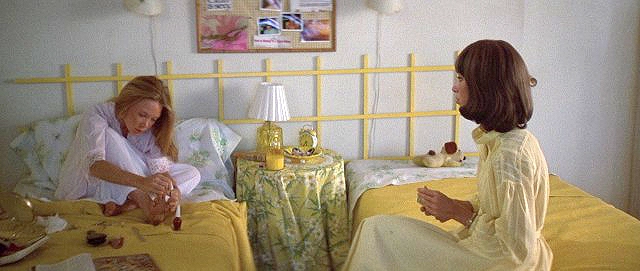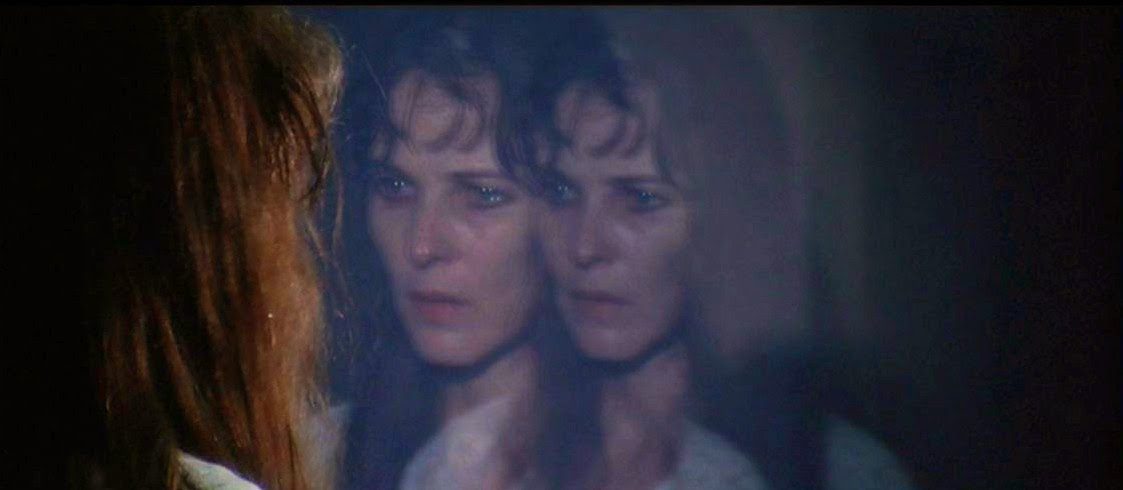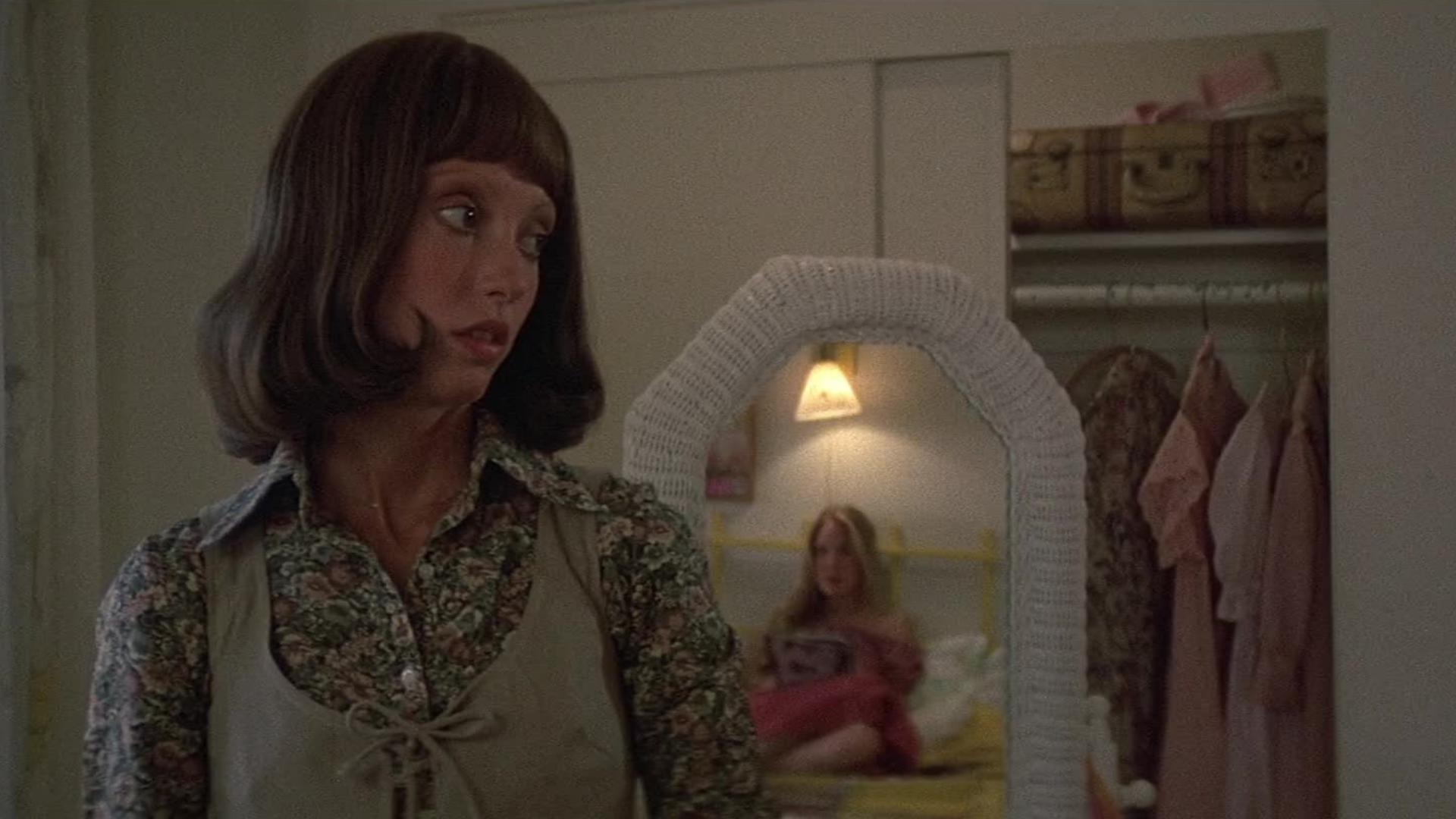“I cannot do Rocky, or One Flew Over the Cuckoo’s Nest and all those films where there’s no question about the way the audience is going to feel at the end. I think sad people laugh, happy people cry, and brave people are frightened. Cowards are brave. There’s total contradiction. The minute you take the surprise away, there’s no art. The minute you plot something and say this is going to be this way beacause of this, you’re wrong.” – Robert Altman: The Oral Biography by Mitchell Zuckoff
Critics often say “They don’t make movies like they used to anymore.” Heck, I’ve said it, such as in my review of Sarah Jacobson’s Mary Jane’s Not a Virgin Anymore. Part of this thinking is, yes, nostalgia. But it also comes from understanding that the current eco-system is so data-driven, so algorithmically minded, with its eye on how to appeal to as many people as possible for as long as possible with as little diminishing returns as likely is that it’s inoculated against the personal and the weird.
You can’t get weirder or more personal than Robert Altman’s 3 Women, a 1977 movie based on a dream. Altman woke up from the dream and called up Alan Ladd Jr., the head of Twentieth Century Fox. He then lied through his teeth. Altman told Ladd he had read a short story and pawned off his dream as the story.

On the one hand, it was the 70s, and the story perfectly encapsulates why the decade was so rife with fascinating art that seems impossible to get made today. Yet, 3 Women remains an odd duck by anyone’s standards, even Altman’s.
Robert Altman made a career out of making movies with sprawling casts. His movies are hard watches, not because they are dull, but because as a director, he leaves you alone. He populates his movies with dozens of little stories. In Altman’s hands, the camera is at once a recording device as well as the eye of the audience acting as a peeping tom into a character’s personal space.
Ingmar Bergman’s Persona partially inspired 3 Women, Altman has admitted as much. But it’s dangerous to mistake that admission because it means we can use Persona as a roadmap.
Yes, 3 Women is about identity, but whose? Altman’s imagery is vital to his work he doesn’t use it in the same as Bergman. The childlike and innocent Pinky (Sissy Spacek), the obtuse and lonely Millie (Shelley Duvall), and the enigmatic pregnant Willie (Janice Rule) seem to be playing the same woman but in different life stages. 3 Women is as complex as identity itself, as varied as the notion of gender.
Unlike Bergman, Altman is very improvisational, crafting safe environments so actors like Duvall, Spacek, and Rule could play their craft, as compared to Bergman’s well-planned, perfectly calibrated imagery. Instead, like with all Altman films, there’s a sense of discovery. As if the film is being shaped as it’s going along, because it is, but it doesn’t feel haphazard or thrown together. There’s a purpose and a guiding hand, like a paddle gently steering the canoe down a stream.
But for an American film, it might be among the best attempts to get at what Bergman does with his imagery. What’s more, despite it being a much more intimate narrative than what Altman usually works with, it’s also pure Altman.
In a sense talking about 3 Women like a mainstream movie is like asking certain questions out loud. The questions that occur to you at night, maybe subconsciously. The ones if spoken out loud they sound like answers.
Describing what happens could be interpreted as describing the plot. Plotcels, the bane of modern movies, would hate Altman, and possibly 3 Women most of all. Because there’s what happens and then there’s what people think happens.
It’s almost a kind of joke to describe the first half of 3 Women as “straightforward”. Altman has never shot anything straightforward in his life. It’s anathema to his entire way of making movies. He’s much too mischievous and much too curious for such a narrow scope.
Besides, how could anyone think that watching that beginning, with Gerald Busby’s avant-garde score sounding like something you’d hear on one of those “Sounds of the West” tapes you’d buy a rest stops? Yet, Busby’s score hints at something unnerving underneath the surface even from the start. Something’s not quite right. The music feels like it’s trying to warn its characters while also feeling as if it’s merely expressing their inner turmoil.
The camera in Altman movies is always fluid, acting following things of little importance or of major interest. In 3 Women, Altman used the lens of Charles Rosher and used water to symbolize amniotic fluid, bringing a whole new meaning to a fluid camera. Water, pregnancy, and primal drawings of alien reptile creatures symbolize great rage, as well as thrusting at the heart of gender itself.
3 Women doesn’t start normally and then turn weird. But like all dreams, it takes a while to realize that something is off. You can feel it but it’s not until things start coming off their hinges, that you start to realize you’re in the thrall of your subconsciousness. But that doesn’t stop the events from being effective; in a way, it makes them all the more disturbing because they are at once both terribly illogical and coldly sane.

If Altman didn’t have such immense faith in his actors 3 Women would have fallen apart. But it’s their faces, their bodies, and their personalities that carry 3 Women to its mystifying conclusion. Duvall, with her owlish face and body made up almost entirely of limbs, exudes a kind of old-school glamour. The kind that we can imagine Spacek’s Pinky being in awe of.
The two women aren’t acting, but inhabiting. It is impossible to walk away from 3 Women and not at least be taken by their abilities. The two women are playing the same character yet in very different head spaces throughout, and there’s not a false note among them. Spacek in particular seems to physically grow inches as her Pinky becomes more confident as 3 Women flows along.
By the time she’s firing a gun with Edgar (Robert Fortier), I was doing a double take, almost unable to believe it’s the same actor. Not because of her looks, though they do change, but because Pinky’s evolution is so stark.
Then there’s Duvall, subtly being annoying so you can understand why everyone avoids her. But it also breaks our hearts as she struggles to make a human connection. The way she follows her co-workers out, talking non-stop as they blithely ignore her, holding their own conversation, elicits nervous giggles from me while also breaking my heart.
Speaking of what you couldn’t get away with in the modern era, Duvall and Spacek as leads would never make it past the pitching stage. To quote the critic, Glenn Kenny, “Spacek and Duvall were a potent combination: two unlikely ‘70s stars, neither possessing conventional movie-goddess “looks,” but emblematic of a certain nonconformity in cinematic icon-making. Genuine stars of the genuinely cosmic kind, you could say.” Their unconventional attitudes and bodies highlight the surrealistic aspect. But more truthful more women look like Duvall and Spacek than most movie stars, it brings the artfulness down to a kind of working-class understanding, grounding the film in a reality.
Moments where Millie gets her dress caught in the car door or Pinky talks about how much she hates mustard, while small, make them feel real. Something vital when everything around them feels so unreal.
These moments feel captured as opposed to craft, and that’s part of why I adore Altman’s films so much. They feel like they are happening, and each new viewing reveals another little moment, because Altman isn’t interested in the plot, he’s interested in the story and the people inhabiting it.
To say Altman doesn’t know what he’s doing or that he’s merely winging it ignores how well put together 3 Women is. Dennis Hill’s editing helps keep the whole shebang feeling hazy and unsettling. Working with Altman and Rosher in brewing a somnambulistic mood. Because no matter how much improv you do, the moment Millie reads her diary and discovers Pinky has been writing in it, doesn’t work unless Altman has successfully drawn us in.
I’m not sure what I found more jaw-dropping. The fact that Pinky was writing in Millie’s diary as if it were her own not merely thoughts, but plans, to manipulate her. Or the fact that Millie behaved as if she was reading Pinky’s diary and behaving as if the whole thing was an invasion of privacy.
More than Persona, 3 Women feels akin to Henry James’s The Turn of the Screw. Only instead of merely an exercise and mood Altman has taken it as a way to explore gender and violence related to it, while also exposing the open hostility society has towards it. Willie’s strange drawings, the way men seem to ignore Millie despite her efforts, and the way they accept Pinky only after trying to commit suicide.
And why did she jump into the pool? Is she faking her amnesia? Were those really her parents at the hospital?
Discussions about 3 Women often leave out Rule’s Willie. Understandable, considering her role is never as central or as flashy as Duvall and Spacek. But her role is every bit as important as theirs. On a surface level, she’s the person in the dream that you feel like you know but can’t place. To Millie and Pinky, she is equal parts a curiosity, a portent of their future, and something they pity.
Pinky, whose real name is Mildred, finds her fascinating. Millie finds her tragic. But what does Willie think of them? She rescues Pinky from the pool after she jumps. Millie delivers her baby while her useless drunken husband Edgar sits back at their apartment, presumably to sleep with one or both of them. But as much as a mystery as 3 Women continues to be, Willie, I feel, is the key. A maternal figure, she has done it all, and lived it all, and knows there are some things people have to find out for themselves.
Three women, all different, yet very much the same. They could be the same woman. Again, based on a dream, behaving as a dream, it’s not outside the realm of possibility that Millie, Mildred, and Willie represent one woman working through a trauma. Or perhaps, merely a woman learning to come to terms with herself. The totality of a life lived, and coming to terms with good or bad, make up who she is.
The ending is representative of a woman who has worked through her issues. Like so many of us, she probably hated her younger self, rued the decisions she made as she got older, and has finally reached a moment of clarity. We are so hard on ourselves, especially when we are younger. Willie is looking back and wondering why she spent so much time worrying about what people thought, trying to be something she wasn’t.

To talk about 3 Women is to expose what it did to you. To confess the feelings it dredged up. This is true of most movies, but some movies require more honesty than the average viewer is prepared to offer up.
What I find most fascinating about 3 Women is how it sits in my mind. How it burrowed its way into my consciousness. After watching it, I had trouble focusing on any other movie. The ending left me confused and enraptured. Because once I turned the movie off, I felt like I was waking up.
Like a dream, I struggled to put into words what had happened. I had a feeling like what I remembered wasn’t right, or what I was trying to say was right but it wasn’t getting at the essence. Have you ever had that? Had a dream and then you wake up, and then try to reconstruct it in your mind, and you feel like there are gaps? When you try to tell someone about it you stumble in your words because they feel wrong, they don’t match the sensation the memory caused.
Of course, you have, we all have, and so has Altman. More than any movie I’ve seen 3 Women resembles not merely the dream state but the feeling of waking from a dream state. The discombulation, the questions, the hazy memories. The magic of 3 Women is how it spawned from Altman’s brain but somehow feels like it spawned from ours as well.
Images courtesy of 20th Century Fox
Have strong thoughts about this piece you need to share? Or maybe there’s something else on your mind you’re wanting to talk about with fellow Fandomentals? Head on over to our Community server to join in the conversation!

